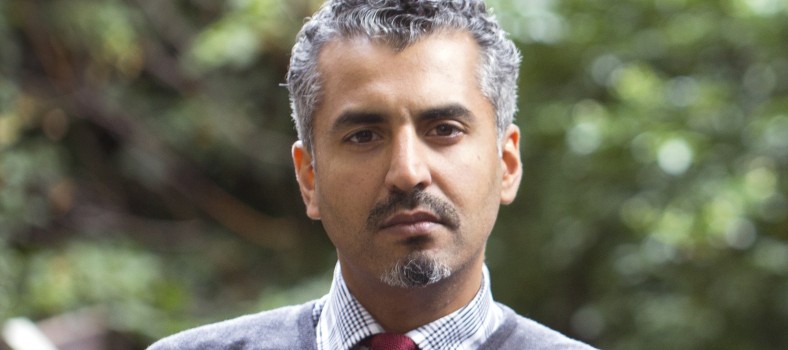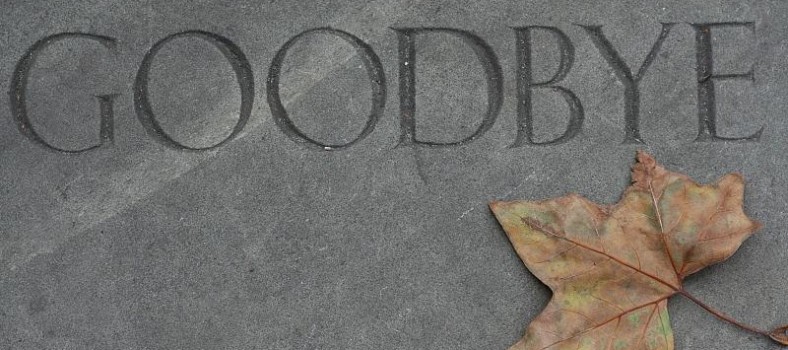Hearing Allah: Why acknowledging the Qur’an’s influence upon violent extremism is an important part of combating it.
It was an eerily solemn and calm night in the illuminated city of Allah’s Messenger. The usually bustling streets of Madinah were quiet and the shops and stalls surrounding the magnificent Mosque of the Prophet were shuttered down for the night.
The vast marble piazza, usually alive with pilgrims from Turkey, Iran, Indonesia, Nigeria, and beyond, was now empty as a hazy moon hung among the towering minarets. Apart from the somber trickle of devout worshippers making our way into the mosque for midnight observances, all was quiet.
The occasion was an impending lunar eclipse, and following the commands of the Prophet Muhammad—who was reported to have trembled in fear at such ominous occurrences for fear the wrath of God might be nigh—we gathered to spend its entire duration in prayer.
The mosque crier pierced through the silence not with the usual and soul-soothingly beautiful calls to prayer typically heard emanating from mosques the world over, but rather with a lesser heard terse announcement from the pages of prophetic tradition used historically to gather the faithful into the mosque for a pressing matters: “As-salaatu Jaamiah!”
As we entered through the majestic gateways and into the mosque’s ornate precincts, a man next to me glanced towards me and said, “This is the call that was used to summon the believers for jihad.”
As the cries echoed from the embellished ceilings and radiant pillars, I made my way to the front of the mosque and secured a spot in its most hallowed area. Here on these very grounds, the Messenger of Allah himself had walked and received revelations from the creator. Here the angels had descended and the words of God were revealed as a mercy for mankind.
Glancing over my shoulder to the elaborately decorated chambers that housed the very remains of the Prophet himself, I could feel the presence of God’s own tranquility descending upon the gathering. And as I lowered my face into the plush embroidered carpets and offered prayers of homage to the mosque, there was no doubt in my mind that I was speaking directly to the Lord of the Worlds. As the congregational prayer began and the beautifully recited words of the Qur’an began to flow, it was as though God himself was speaking back to me. I listened attentively to what he had to say.
It just so happened that the Imam that night had chosen to recite verses from Surah Al-Anfal, a chapter said to have been revealed to Muhammad from God in commemoration of his victory at the battle of Badr. Muslims know and celebrate this occasion during which Muhammad’s failed raid on an unarmed Makkan caravan resulted in a larger victory against the Makkan army by his small band of followers. The chapter is filled with allusions to war, promises of victory for the faithful, and injunctions to strive against the enemies of God.
Remember thy Lord inspired the angels (with the message): “I am with you: give firmness to the Believers: I will instill terror into the hearts of the Unbelievers: smite ye above their necks and smite all their finger-tips off them. That is because they opposed Allah and His messenger. Whoso opposes Allah and His messenger, lo! Allah is severe in punishment…. And fight them until tumult is no more, and religion is all for Allah. But if they cease, then lo! Allah is Seer of what they do!…
Oh ye Prophet! Rouse the believers to fight!…
It is not for any prophet to have captives until he hath made slaughter in the land. Ye desire the lure of this world and Allah desires (for you) the Hereafter, and Allah is Mighty, Wise.
~Surah Anfal
For many Muslims around the world, the Qur’an is not seen simply as a historical piece of literature upon which to loosely base one’s life philosophy; it is the active, eternal word of God to be taken as true and relevant at all times and places. This is the beauty of its appeal. In the way that God had revealed himself to Moses through the burning bush or became flesh through the body of Christ, he speaks unto all believers eternally through the Qur’an.
As I heard the above verses being proclaimed through the mosque, I could not help but feel as though the Almighty was summoning me to fight on his behalf. Sounding almost like a sermon delivered by Allah himself, the words touched my soul as though I was personally being beckoned to aid God’s cause. There is no doubt that had there been a battle unto which I could have been harkened in such a state of devotion, I would have readily attended.
I recount this story to illustrate the manner in which many verses of the Qur’an can be used to motivate young men and women to take part in dubious acts of “jihad” across the globe. While the scholars of the Qur’an may be able to debate things like historical context and legislative limitations, at face value, many verses of the Qur’an are easily interpreted as direct calls from the Creator to take up arms against the enemies of God.
As I listened, for example, to the sickening descriptions of how Woolwich murderer Michael Adebolajo attacked his victim by ensuring that he was “struck in the neck,” I couldn’t help but call to mind the origins of that very phrase. It appears in the Qur’an in the verses quoted above as well as in statements attributed to Muhammad. Often times do we read in Islamic literature of Muhammad’s fierce companion, Umar, regularly and nonchalantly asking for permission to “strike the necks” of suspected dissenters in the town.
Rousing exhortations to fight against God’s disbelieving adversaries and to support the “weakened men women and children” also appear scattered throughout the Qur’an:
Let those fight in the cause of Allah who sell the life of this world for the hereafter. To him who fights in the cause of Allah,- whether he is slain or gets victory – Soon shall We give him a great reward. How should ye not fight for the cause of Allah and of the feeble among men and of the women and the children who are crying: Our Lord! Bring us forth from out this town of which the people are oppressors! Oh, give us from thy presence some protecting friend! Oh, give us from Thy presence some defender! Those who believe fight in the cause of Allah, and those who reject Faith Fight in the cause of Evil: So fight ye against the friends of Satan: feeble indeed is the cunning of Satan.
~Surah An-Nisa
It is not difficult to see how easily these passages and the many more like them lend themselves towards jihadist propaganda.
Now, never do I suggest that all Muslims interpret the Qur’an in such violent and heinous ways. Nor do I think that such interpretations are necessarily the correct ones.
What I am advocating, however, is acknowledgement and open discussion of these easily misused passages.
A huge disservice is done to the broader Muslim community and to the world at large by those talking heads who, once the cameras are rolling, assume the ostrich position and claim that the Qur’an is an entirely peaceful book. By suggesting that those who use such passages to justify their terrorism have no basis whatsoever, an opportunity to actually challenge that narrative and interpretation is missed.
Now, as an ex-Muslim, it is much easier for me to accept that the lord of humanity would not be so irresponsible as to leave such potentially explosive rhetoric littered throughout his final communication to mankind, especially as he must have known the negative consequences of such statements upon history. For those who believe the Qur’an to be God’s unadulterated word, however, it is time that you acknowledge those troubling parts of your scriptures and hold yourselves to account for them. Denying them in this age when access to them is readily available will not help, nor will simply resorting to calling out similarities in other scriptures.
For while political turmoil, economic dissatisfaction, and a lack of education may well be contributing factors, any discussion seriously aimed at curbing violent Islamic extremism must acknowledge the fact that those dissatisfied souls looking for guidance from the “eternal Word of God” will find therein that their God has said things like, “Slay (the disbelievers) wherever you find them!” and “Fight them! Allah will punish them through your hands.” And even if the general public is not reading and interpreting the Qur’an, those troubled minds who do read it for guidance will find therein—nestled between verses enjoining prayer, patience, and charity—fairly straightforward injunctions towards violence.




